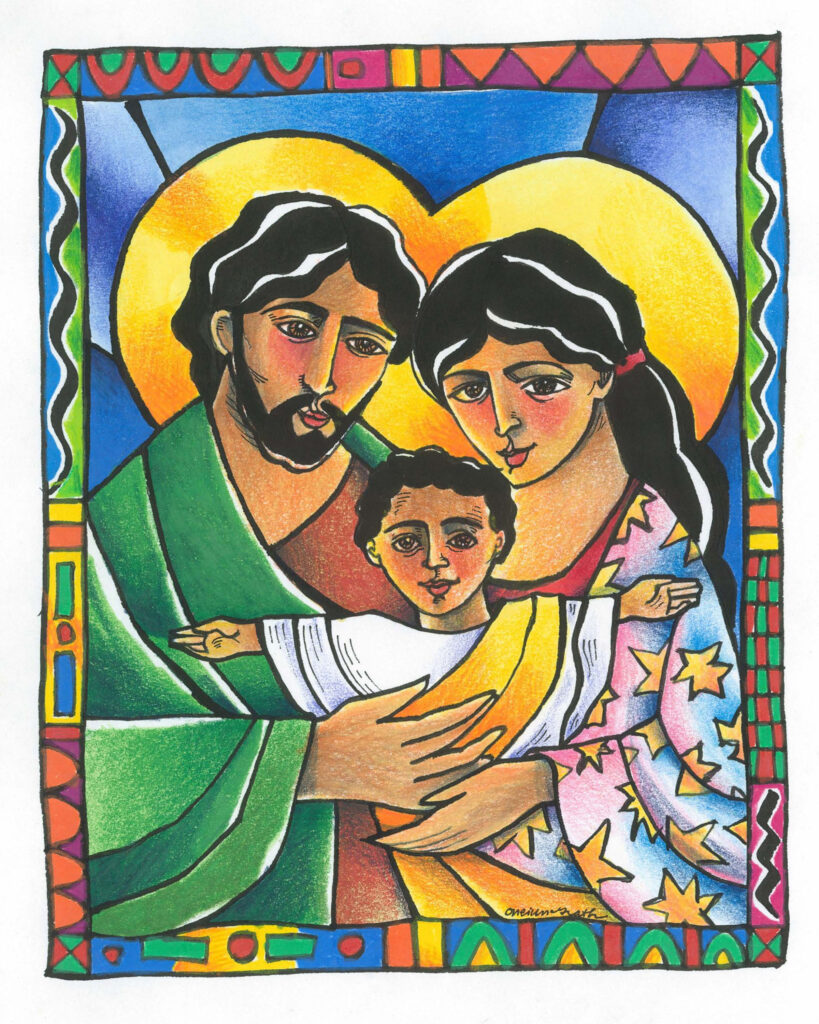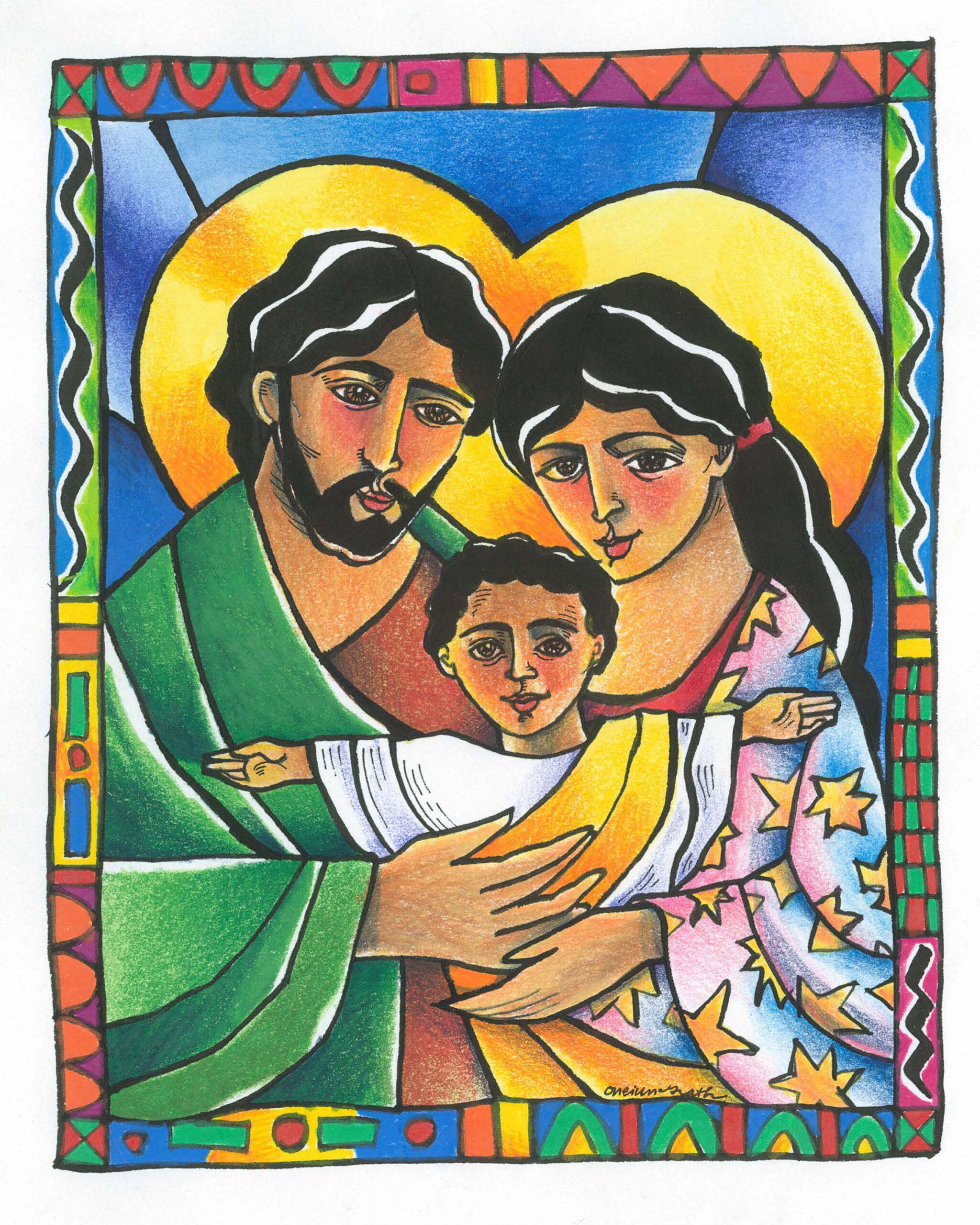This essay first appeared in our weekly Scripture reflection newsletter on December 28, 2024.
We are smack dab in the middle of the holiday season, with most of us recovering from Christmas and preparing for the New Year’s celebrations. That means that many of us are either spending, have spent or will be spending time with members of our families.
Most of us have the same reactions during the holidays: Why is my family so maddening? Why is this person so difficult? Why does this person always make me feel like I’m a child? Why can’t these two people just get along and stop sniping? Why is this cousin or aunt or uncle so homophobic or racist or misogynistic or narrow-minded or whatever? By the way, if any of my family members are reading this, we know that our family, alone among all of the rest, is perfect!
I’m kidding of course. No family is perfect—not even mine. In fact, one of the best homilies I’ve ever heard was many years ago at my family’s home parish, Epiphany of Our Lord, in Plymouth Meeting, Penn. At the 4:00 PM Christmas Eve Mass, which was packed with families, the presider, the Rev. Joseph Gentili, read the long genealogy of Jesus Christ, from Matthew’s Gospel, which traces Jesus’s lineage all the way from Abraham through King David up to Joseph, the husband of Mary.

At the end of proclaiming the Gospel reading, Father (now Monsignor) Gentili said to a church filled with screaming infants and squirming toddlers, “Now I’m sure you’re all wondering: Why did he read that whole thing?” His answer was that it was to show that even in Jesus’s family tree there were a few unsavory characters.
We can start at the very beginning with Abraham, who banished Ishmael and his mother Hagar into the desert; or Jacob, who stole his brother Esau’s inheritance; not to mention King David, who arranged to have the husband of Bathsheba, the woman he lusted after, be killed in battle. Some of the women were also not perfect, like Rahab, a Canaanite prostitute. Father Gentili’s point was that all of our families are imperfect.
On this Feast of the Holy Family, we may be tempted to think that Jesus’s immediate family—Mary and Joseph—was free of any friction. And, of course, Jesus is the sinless Son of God, Mary was conceived without sin and Joseph was a saint. But before we assume that Jesus couldn’t possibly know what it means to live in a “normal” family, we should remember two things. First, while the Holy Family could be said to be the ideal family, the rest of Jesus’s extended family—his cousins and aunts and uncles and all the rest—weren’t necessarily perfect. Not everyone in Jesus’s presumably large Galilean family was holy. So Jesus understood what it meant to live with less-than-perfect people.
While the Holy Family was holy, their lives were not free from stress, disagreement and even conflict.
Second, in today’s Gospel, we read what is usually called the story of “The Boy Jesus in the Temple.” After Jesus is left behind when his family is returning from a pilgrimage to Jerusalem (less surprising than one might think since large groups used to caravan to the Holy City), Mary and Joseph become distraught over seemingly losing him. When they discover him in the Temple, they scold him, saying, “Why have you treated us like this?” In response, he tells them who his real father is: God.
In John’s Gospel, a similar intra-family interchange occurs at the Wedding Feast of Cana, where Jesus responds to his mother in strong terms, after she tells him that the wedding party has run out of wine. “Woman,” he says, “what concern is that to you and to me?” For those who doubt the harshness of that language, the Greek phrase ascribed to Jesus at Cana (Ti ēmoi kai soi?) is the same that a demon shouts at Jesus in Luke (Ti hemin kai soi?). Basically, “Who are you to me?”
In other words, while the Holy Family was holy, their lives were not free from stress, disagreement and even conflict. This should give us all hope for our own families. Not only does Jesus understand our struggles with our families, and not only is he with us in those struggles, but he doesn’t expect our families to be perfect. Holy? Well, with God’s grace, we can strive to be loving, charitable and forgiving and thus, we can aim for holiness. But perfect? No. Happy Feast of the Holy Family!



